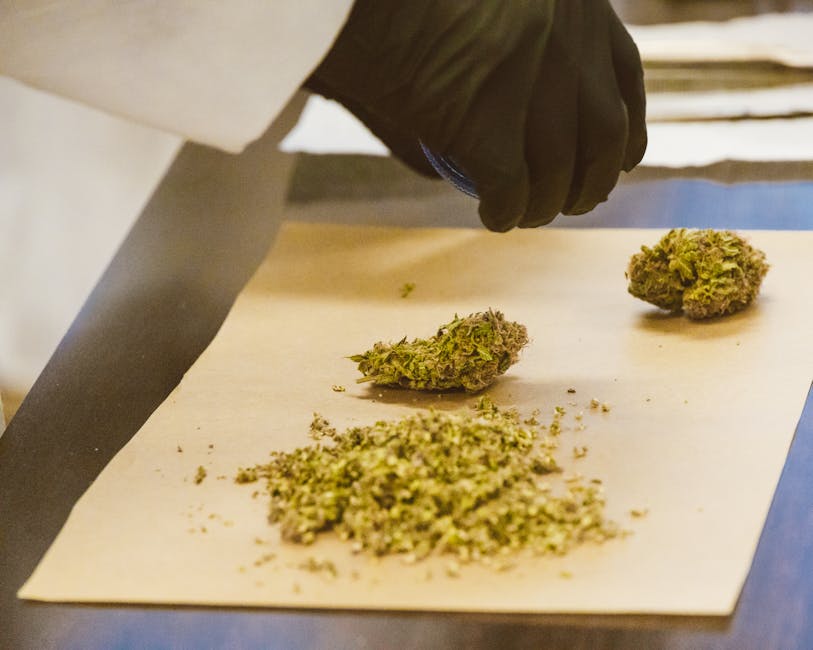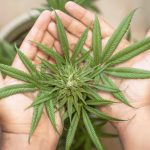THC weed in Belgium
Belgium, a country known for its rich history, delicious chocolate, and vibrant culture, has a complex relationship with cannabis․ The use of THC weed, also known as marijuana, has been a topic of debate in the country for several years․ In this article, we will explore the current laws and culture surrounding THC weed in Belgium․
Laws and Regulations
In Belgium, the use of cannabis for medical purposes is allowed, but it is strictly regulated․ In 2015, the government legalized the use of cannabis-based medicines, but the law does not permit the recreational use of THC weed․ However, the possession of small quantities of cannabis for personal use is tolerated․
The Belgian law distinguishes between “possession for personal use” and “possession for trafficking․” Possession of up to 3 grams of cannabis is considered “possession for personal use” and is not prosecuted․ However, possession of larger quantities can lead to fines and imprisonment․
Cannabis Culture in Belgium
Despite the strict laws, cannabis culture is thriving in Belgium․ The country has a long history of cannabis use, and it is not uncommon to see cannabis cafes, also known as “coffee shops,” in major cities like Brussels and Antwerp․
- Cannabis festivals and events are becoming increasingly popular in Belgium․
- The country is home to a growing number of cannabis-related businesses, including grow shops and CBD manufacturers․
- Many Belgians are advocating for the legalization of recreational cannabis, citing the potential economic benefits and the need for a more relaxed approach to drug policy․
Medical Cannabis in Belgium
Belgium has a well-established medical cannabis program, which allows patients to access cannabis-based medicines with a doctor’s prescription․ The program is regulated by the Ministry of Health, and patients can obtain medical cannabis from licensed pharmacies․
Medical cannabis is available in various forms, including dried flowers, oils, and capsules․ Patients can use medical cannabis to treat a range of conditions, including chronic pain, multiple sclerosis, and epilepsy․
THC weed in Belgium exists in a gray area, with laws and regulations that are complex and sometimes contradictory․ While recreational use is not permitted, the country has a thriving cannabis culture, and medical cannabis is available to patients who need it․ As attitudes towards cannabis continue to evolve, it will be interesting to see how Belgium’s laws and regulations adapt to the changing landscape․
The Rise of CBD in Belgium
While THC remains a controlled substance, CBD (cannabidiol) has become increasingly popular in Belgium․ CBD is a non-psychoactive compound found in cannabis, and it has been touted for its potential health benefits․ As a result, CBD products have flooded the Belgian market, with many shops and online retailers selling CBD oils, capsules, and other products․
CBD is legal in Belgium as long as it is derived from a EU-approved cannabis variety and contains less than 0․2% THC․ This has led to a growing industry, with many Belgian companies producing and selling CBD products․
Cannabis Tourism in Belgium
Belgium’s liberal attitude towards cannabis has made it a destination for cannabis tourists․ Many visitors from countries with stricter cannabis laws come to Belgium to purchase cannabis or visit cannabis cafes․
While cannabis tourism can be a lucrative business, it also raises concerns about the impact on local communities and the potential for cannabis to fall into the wrong hands․ As a result, the Belgian government has implemented measures to regulate the cannabis trade and prevent the sale of cannabis to minors․
Future Developments
The future of cannabis in Belgium is uncertain, but it is likely that the country will continue to move towards a more liberal approach to cannabis regulation․ The Belgian government has announced plans to review the country’s cannabis laws and consider the possibility of legalizing recreational cannabis․
If recreational cannabis is legalized, it could have significant economic benefits for Belgium, including increased tax revenue and job creation․ It could also lead to a more regulated and safer cannabis market, with better protections for consumers․
The cannabis landscape in Belgium is complex and constantly evolving․ While there are still many challenges to be addressed, the country’s liberal attitude towards cannabis has created a thriving industry and a growing community of cannabis enthusiasts․ As the country continues to navigate the complexities of cannabis regulation, it will be interesting to see how the industry develops and what the future holds for cannabis in Belgium․






The distinction between possession for personal use and trafficking is a good one, it makes sense to focus on prosecuting those who are profiting from the sale of cannabis rather than those who are using it for personal purposes.
Interesting to see how Belgium is handling the cannabis debate, it seems like they are taking a pragmatic approach by allowing medical use while still maintaining strict regulations on recreational use.
I appreciate that the article highlights the growing cannabis culture in Belgium, it will be interesting to see how this develops in the coming years and whether the country will move towards full legalization.